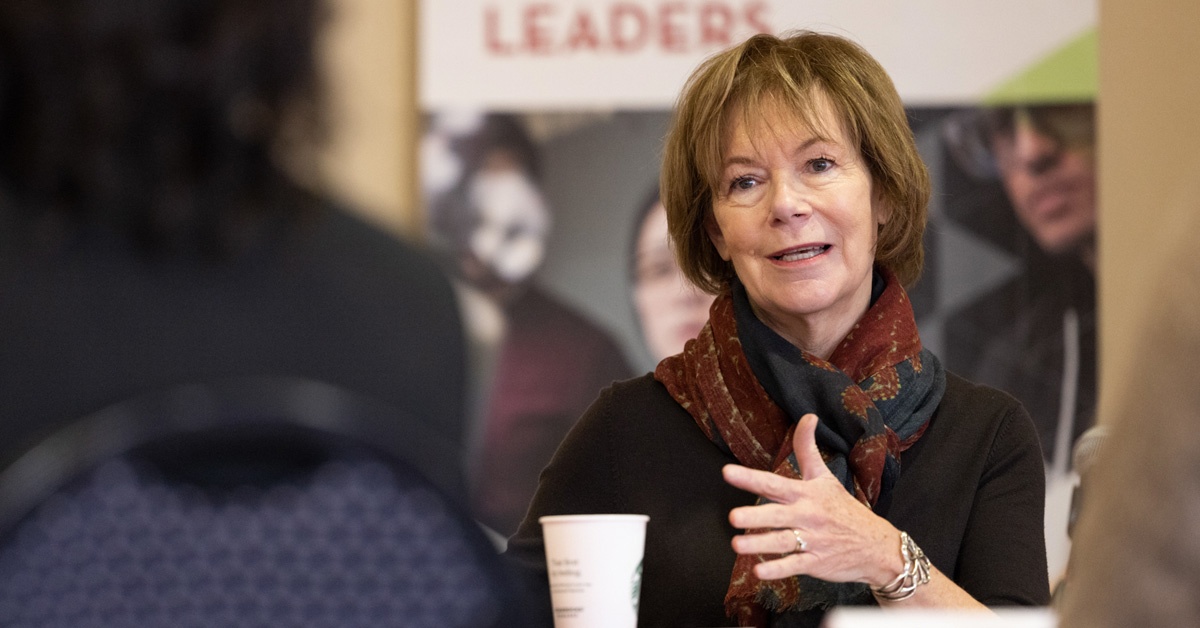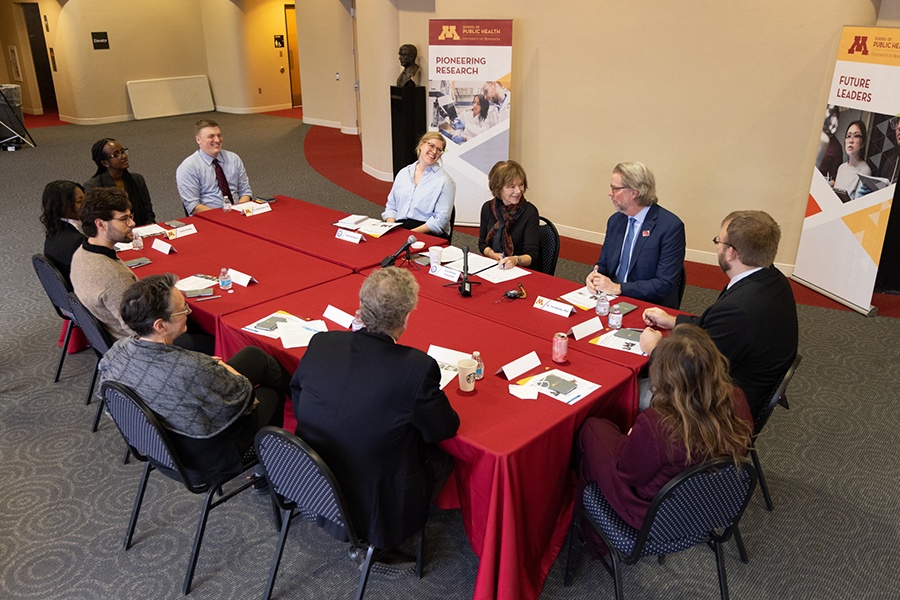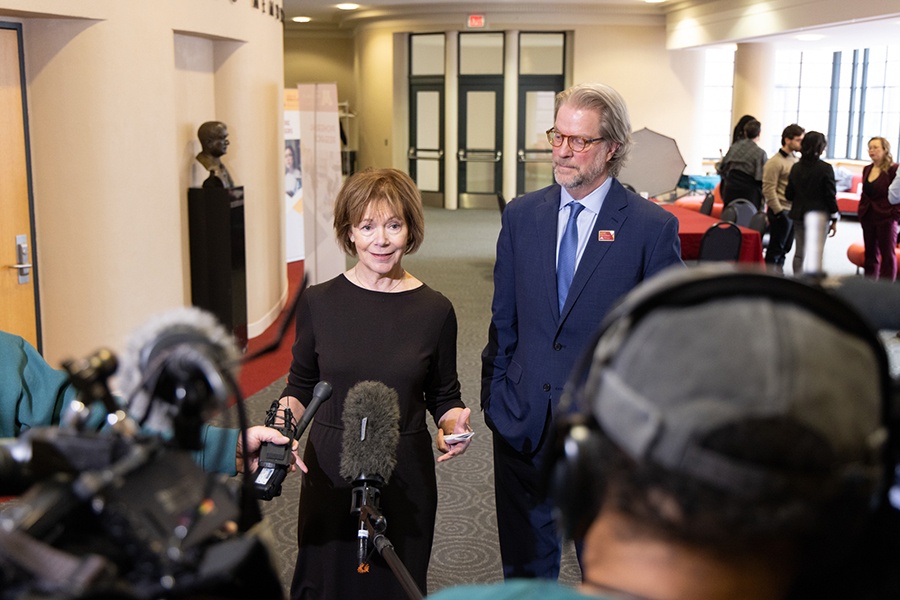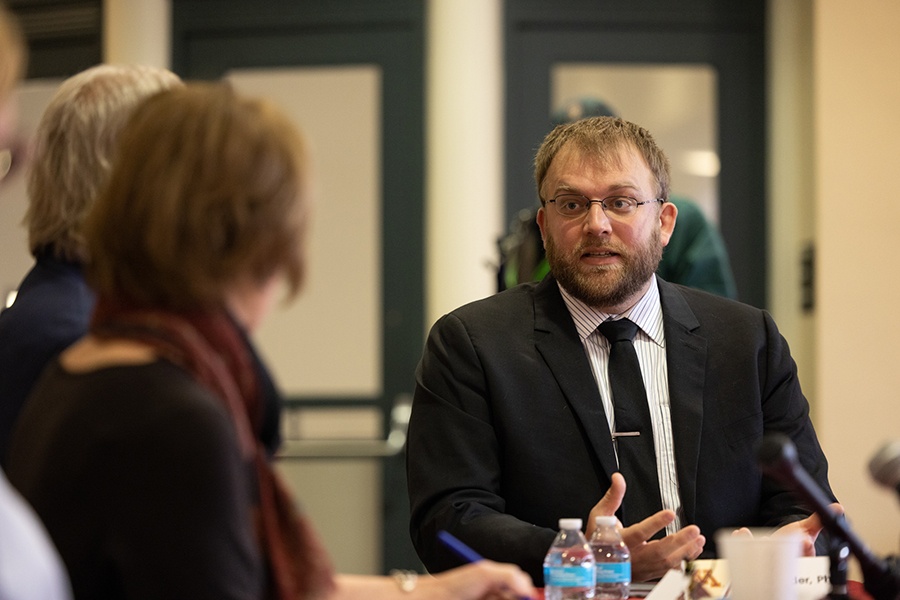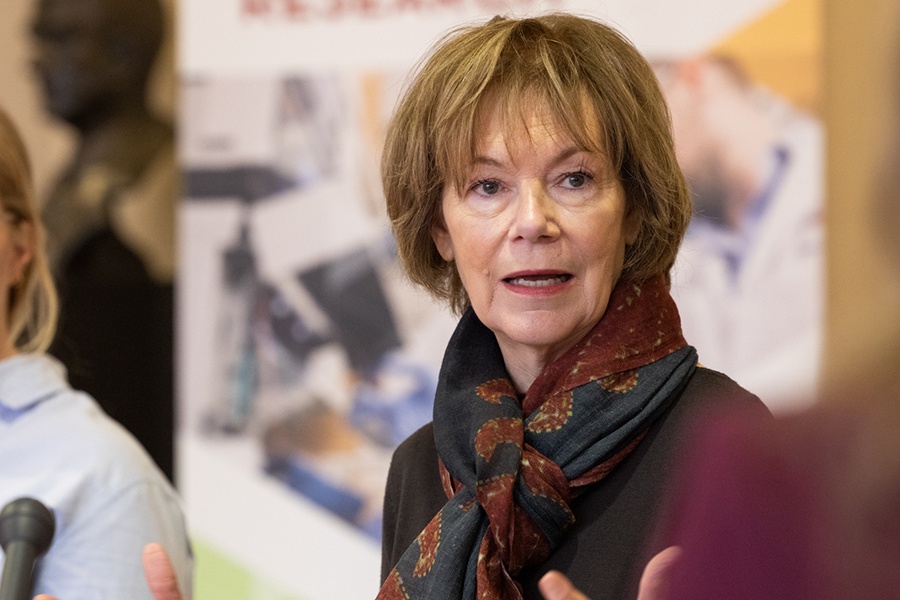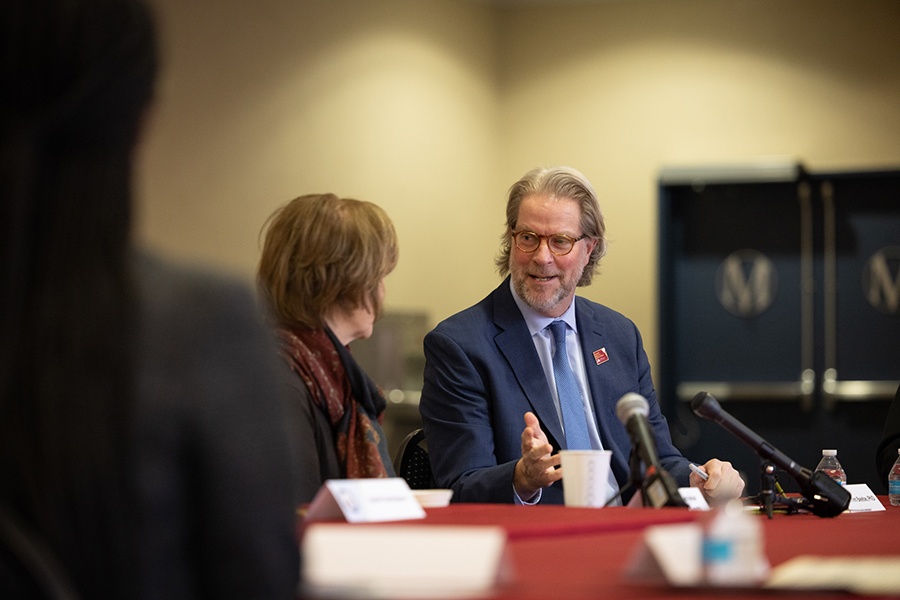U.S. Senator Tina Smith visited the U of M School of Public Health (SPH) to hear from faculty, administrators and students about the school’s research and national leadership to address the nation’s ongoing public health workforce shortage.
Recent SPH research shows that the number of people working in our nation’s public health sector is woefully inadequate to meet our basic public health needs, and previous research highlights the fact that at least 80,000 more full time equivalent (FTE) employees were needed at the state and local level prior to the onset of the COVID-19 pandemic.
Senator Smith said one of her key priorities is securing more stable funding, which would allow our public health workforce to get off what she termed the “feast or famine rollercoaster” that describes the national approach to increasing federal funding during visible public health crises and then rolling back investments once they are resolved. As the nation emerges from the pandemic, she said, “Now is the time to invest in our public health workforce. You don’t want to build back to where you were before, you want to build forward to what you’re going to need in the future.”
Senator Smith told the group that she especially wanted to learn about the new Consortium for Workforce Research in Public Health (CWORPH). The unique collaboration, led by the SPH Center for Public Health Systems (CPHS), will address public health workforce challenges by conducting robust workforce research, evaluation, and analysis.
CPHS Director JP Leider says that developing strategies to recruit and retain people in the public health workforce is critical to the consortium’s mission. “We are lucky to be leading this national consortium of universities and other partners to help set a national research agenda,” he says. Leider emphasized that the national conversation must consider how to diversify the workforce and create “pathways that stay there after the pandemic,” in addition to a stable funding source.
SPH student Yasmin Odowa, a roundtable participant who has worked in the public health field for a number of years, emphasized that retaining people involves better funding, but must also recognize the importance of diversity at all levels. “It’s important to see people who look like me, not just in front-line staff, but also above us, in leadership,” she says. “I looked up, and there was no one who looked like me or shared my experiences in any of the leadership roles. I felt like there was a cement ceiling, not just a glass ceiling.”.
Senator Smith asked current SPH graduate student Denisha Demeritte what she thought could be done to expand the public health pipeline and make it more accessible to people of color. Demeritte recommended more general awareness of public health as a field, plus additional scholarships and funding opportunities.
Senator Smith is a leading national voice in support of public health efforts. Last year, she led a bipartisan bill, Strengthening the Public Health Workforce Act, that reauthorized a public health workforce loan repayment program to attract new workers. The bill was part of the omnibus spending bill signed by President Biden on December 29, 2022.
